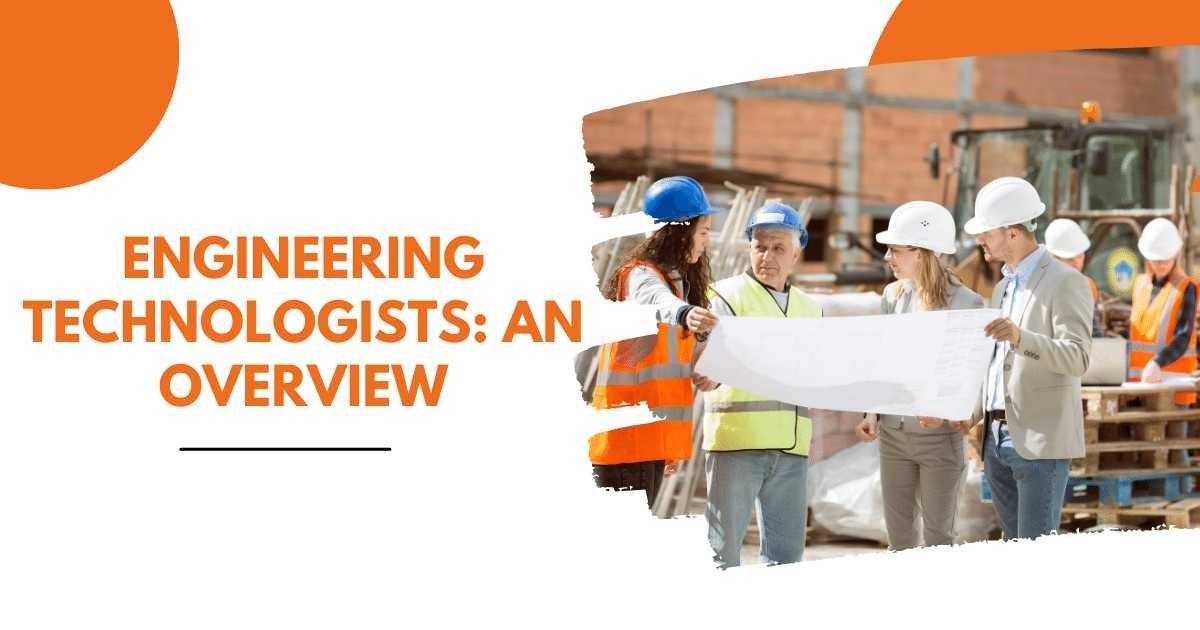An Engineering Technologist is a highly skilled professional who combines engineering principles and technical expertise to design, develop, and test various systems and products.
They work closely with engineers and play a vital role in any engineering team. In this article, we will delve into the role and responsibilities of an Engineering Technologist, their required skills, and the differences between them and engineers.
The Job Description of an Engineering Technologist
An Engineering Technologist brings engineering concepts to reality. They use their technical know-how to design, create, and evaluate systems and products. They work across various industries such as construction, manufacturing, and technology and their day-to-day tasks might include:
- Conducting research to assess the viability of new products and systems
- Building prototypes and models of new systems and products
- Analyzing and testing systems and products to identify problems and areas for improvement
- Drafting technical reports and documentation
- Collaborating with engineers, designers, and other professionals to bring products to the market
Key Skills Required for an Engineering Technologist
To excel as an Engineering Technologist, one must possess a thorough understanding of engineering concepts and techniques, as well as exceptional problem-solving and analytical skills. Other crucial skills are:
- Technical writing and communication skills to communicate effectively with engineers and other professionals
- A keen eye for detail to ensure that products and systems are designed and tested accurately
- Project management skills to oversee the development of systems and products from start to finish
- Creative thinking skills to come up with new and innovative ideas for products and systems
ANZSCO 233111 Engineering Technologist CDR Report Sample
Engineering technologists analyze and modify existing technology to create and test other engineering projects. Engineering technologist adjusts existing engineering technologies to apply them in the testing and implementation of engineering projects. CDR Report Sample Structure for ANZSCO 233111 can be used by Engineers in Australia migrating to Australia.
Differences between Engineering Technologists and Engineers
While Engineering Technologists and Engineers share several similarities, there are certain differences that set them apart. Firstly, their level of education and training differs. Engineering Technologists usually hold an associate degree or certificate, while Engineers typically have a bachelor’s degree or higher.
Another key difference is their focus. Engineering Technologists are more centered on the technical aspects of engineering such as design and development, while Engineers are more focused on the theoretical and mathematical aspects of engineering.
Lastly, Engineering Technologists typically work in a supportive role, assisting Engineers with technical tasks and providing technical expertise. On the other hand, Engineers lead projects and make key decisions.
Conclusion
In conclusion, Engineering Technologists play a crucial part in the engineering field, bringing engineering concepts to life and ensuring that systems and products are designed, developed, and tested to the highest standards.
If you are interested in pursuing a career as an Engineering Technologist, it is crucial to have a robust understanding of engineering principles, hone your technical and communication skills, and establish a network of industry contacts.
Professional help in writing CDR for the skill assessment of EA
Engineers writing CDR without a professional’s help are prone to make various mistakes. EA will reject skill assessment if CDR is not written in accordance with guidelines. A dedicated engineering team with years of experience in CDR writing services will walk you through the process and ensure a high approval rate of CDR from Engineers Australia..
